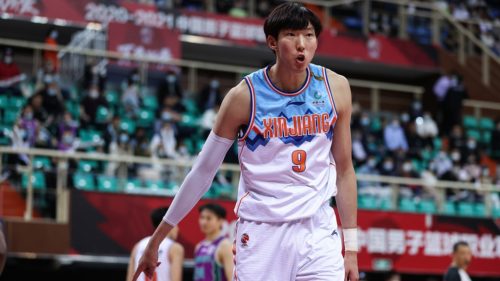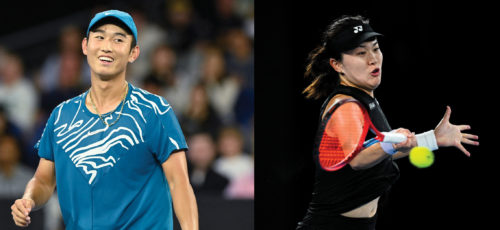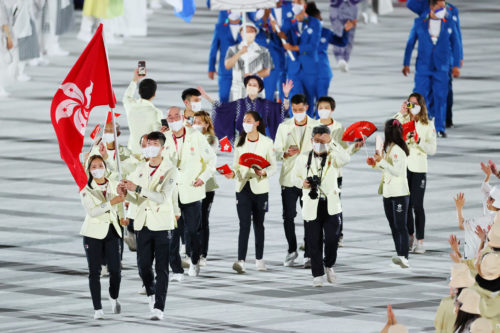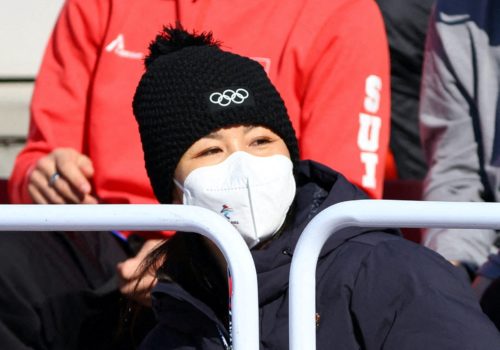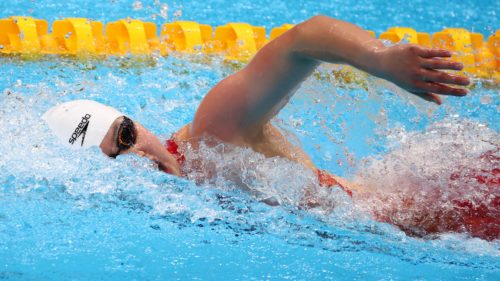PyeongChang Winter Olympics preview: For Team China, It’s All About 2022
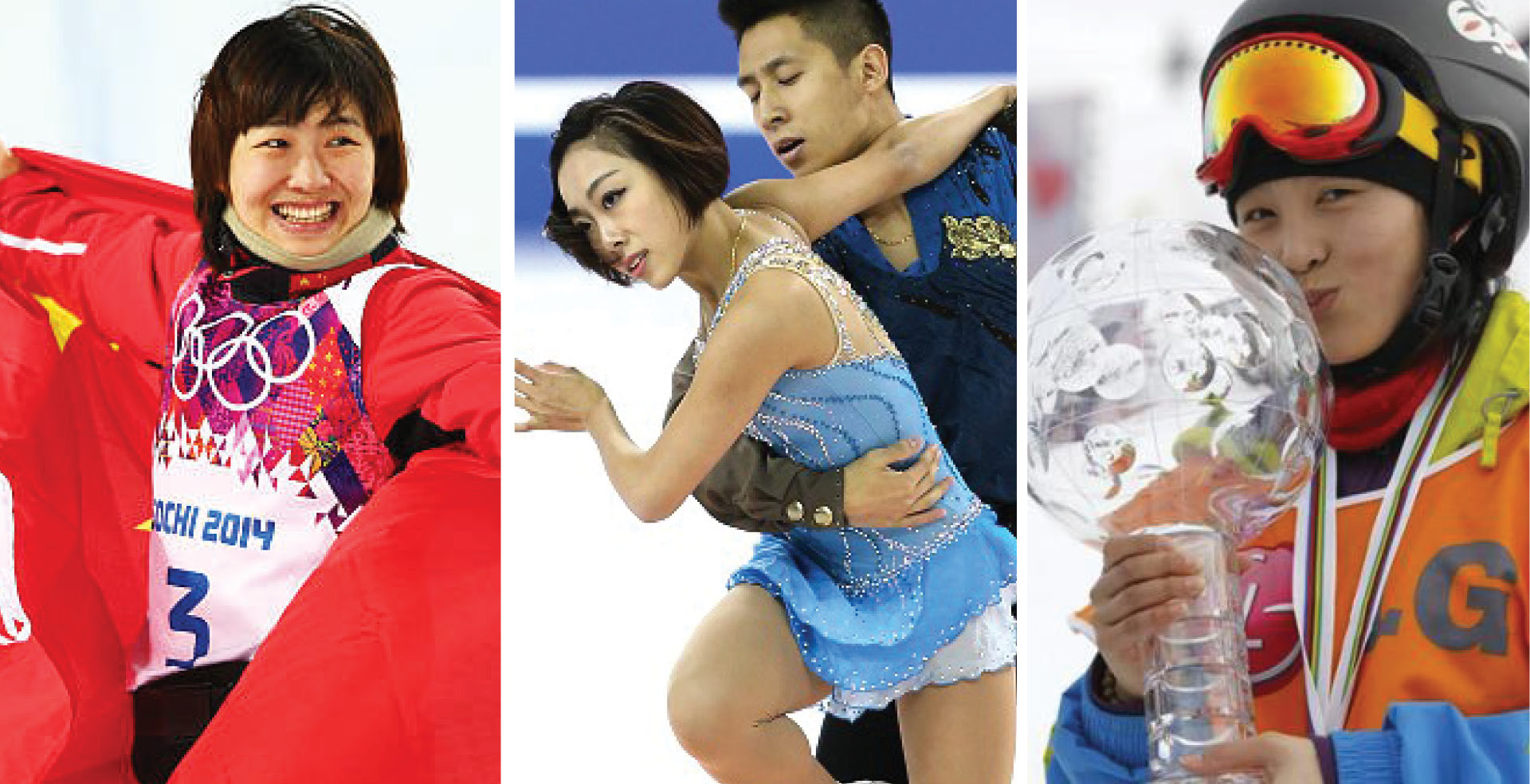
Pictured: Xu Mengtao, Sui Wenjing and Han Cong, Cai Xuetong
The China Sports Column is a The China Project weekly feature in which China Sports Insider Mark Dreyer looks at the week that was in the China sports world.
It’s well known that the host nation of every Olympic Games — whether Summer or Winter — can expect to win more medals, due to a combination of factors, including increased funding and fanatical home support. It’s also typically the case that a country will get a bump, albeit a smaller one, in the two Olympics immediately before and after the one it hosts.
With Beijing/Zhangjiakou hosting the 2022 Winter Olympics, you might expect Chinese athletes to have a strong showing at the Pyeongchang Olympics, which officially begins later today.
But the Chinese don’t quite see it that way — for good reason.
Here’s the thing: nine of China’s 12 gold medals in Winter Olympics history — dating back to 1980, though the country’s first gold medal was in 2002 — have come in short track speed skating (all of them won by women, incidentally). China’s biggest rival in the sport? South Korea — this year’s host nation.
But it’s not all doom and gloom. The Associated Press predicts China will win three gold and three silver medals over the next two weeks, while the Olympics predictor extraordinaire, Gracenote, forecasts a total of 10 medals for China, including six gold. (For reference, China won 12 medals at the 2014 Sochi Games, including three gold.)
Let’s take a look at some of China’s best medal hopes, who — if they find success in PyeongChang this month — could become huge domestic stars four years from now.

China has been very successful at converting second-tier gymnasts into top-level aerial skiers — the sport, after all, is effectively gymnastics on skis. Xu Mengtao 徐梦桃, a runner-up four years ago and this season’s World Cup champion, is widely tipped to win the women’s competition, while Qi Guangpu 齐广璞 and Jia Zongyang 贾宗洋 (bronze in Sochi 2014) both have medal chances in a competitive men’s division.
In pairs figure skating, Nielsen’s Gracenote modeling software says Sui Wenjing 隋文静 and Han Cong 韩聪 will claim the title, while the Associated Press marks them down for silver. They would be hugely popular winners if they could reclaim for China the title that Shen Xue 申雪 and Zhao Hongbo 赵宏博 famously won in Vancouver eight years ago. Su and Han won gold at last year’s World Championships, but have been carrying some minor injuries in recent weeks. Meanwhile, in the men’s singles, 20-year-old Jin Boyang 金博洋 has put himself in contention following a World bronze a year ago.
As usual, though, it’s short track speed skating that provides China with its best hopes of a sizable medal haul. Wu Dajing 武大靖 (men’s 500m) and — if fit — Han Tianyu 韩天宇 (men’s 1500m) have been tipped for success alongside the men’s 5000m relay, while on the women’s side, Fan Kexin 范可新 and Zhou Yang 周洋 will both line up for the women’s 500m, while the 3000m relay team is also strong. Again, some of their main competition comes from the South Koreans, but short track can be so unpredictable, with dramatic falls a regular feature of races. Make sure you tune into the finals if you can.

Sporting action already began on Thursday, ahead of today’s opening ceremony, with China’s mixed gender curling team narrowly defeated 7-5 by Switzerland. But the Swiss are very strong, and China, which has made big strides in the sport over the past few Olympic cycles, still harbors medal ambitions.
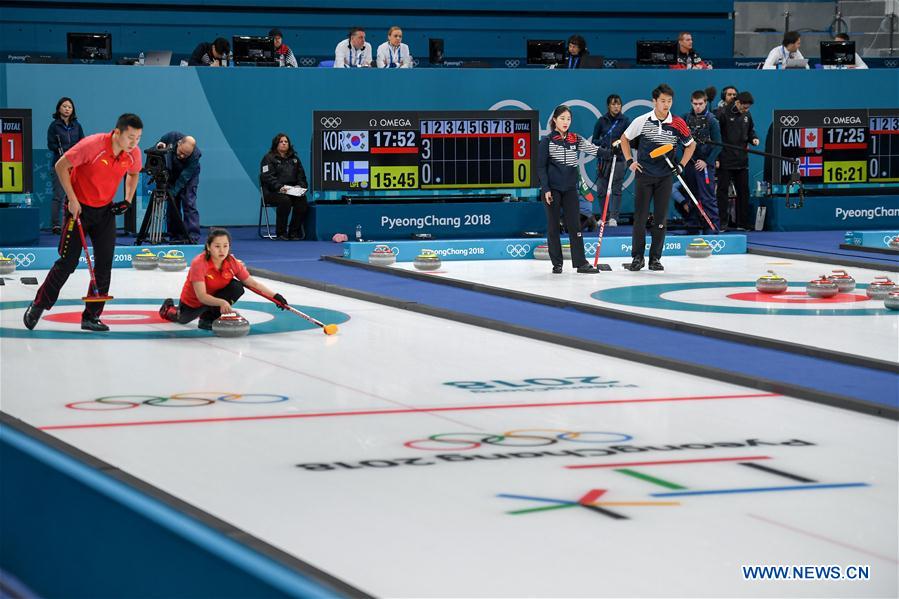
However, it’s in some of the cooler sports — which the IOC has been keen to draw younger audiences — where China is on the cusp of its biggest breakthroughs. Both the Gracenote soothsayers and the AP predict silver for Cai Xuetong 蔡雪桐 in the women’s snowboard halfpipe, behind the ethnically Korean U.S. star Chloe Kim, who, at 17, is already leagues above the competition and poised to be one of the stars of the Games. Liu Jiayu 刘佳宇 could also challenge for a halfpipe medal, having shown good form in the World Cup this season, as could Zhang Yiwei 张义威 on the men’s side.
But a consistent theme in state media in recent weeks has been about getting experience and building for 2022, with 2018 simply one stop along a more important journey.
Fifteen-year-old Zhang Kexin 张可欣 became the second-youngest female freestyle skier from any nation to win a World Cup halfpipe gold medal last year. Meanwhile, 17-year-old Guan Ziyan 关子妍 and 20-year-old Wang Jin 王金 compete in the moguls and have said they are specifically concentrating on the Beijing Games in four years. Their American coach, Scott Rawles, has been with the team since October 2014, and pointed out that in the West, kids often start skiing between the ages of three and seven, whereas some of his skiers only started at 15.
What Chinese has done so well in the Summer Olympics is to monopolize sports and disciplines that are not universally popular, as well as to play the numbers game to great effect in individual sports such as gymnastics and diving.
It’s no accident, then, that China will enter athletes in 10 events for the first time, making its debut in sports such as bobsled and parallel giant slalom in snowboarding.
Don’t expect any medals in these newer disciplines this time around, and brace for plenty of media coverage about “experience.” But four years from now, after a fully funded, professional training regime that few other countries can match kicks into high gear, don’t be surprised when Chinese athletes start popping up on podiums everywhere.
The China Sports Column runs every Friday on The China Project. Follow Mark Dreyer @DreyerChina.
